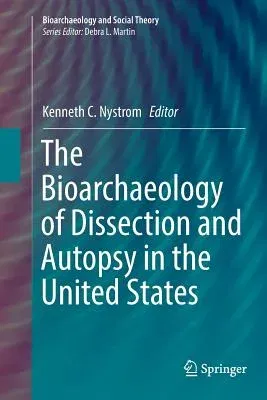The Bioarchaeology of Dissection and Autopsy in the United States (Softcover Reprint of the Original 1st 2017)Paperback - Softcover Reprint of the Original 1st 2017, 9 June 2018

Qty
1
Turbo
Ships in 2 - 3 days
In Stock
Free Delivery
Cash on Delivery
15 Days
Free Returns
Secure Checkout

Part of Series
Bioarchaeology and Social Theory
Print Length
346 pages
Language
English
Publisher
Springer
Date Published
9 Jun 2018
ISBN-10
331980023X
ISBN-13
9783319800233
Description
Product Details
Book Edition:
Softcover Reprint of the Original 1st 2017
Book Format:
Paperback
Country of Origin:
NL
Date Published:
9 June 2018
Dimensions:
23.39 x
15.6 x
1.93 cm
ISBN-10:
331980023X
ISBN-13:
9783319800233
Language:
English
Location:
Cham
Pages:
346
Publisher:
Weight:
512.56 gm